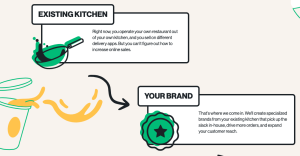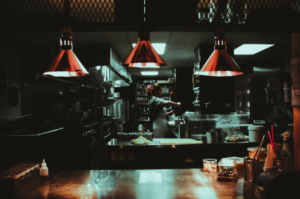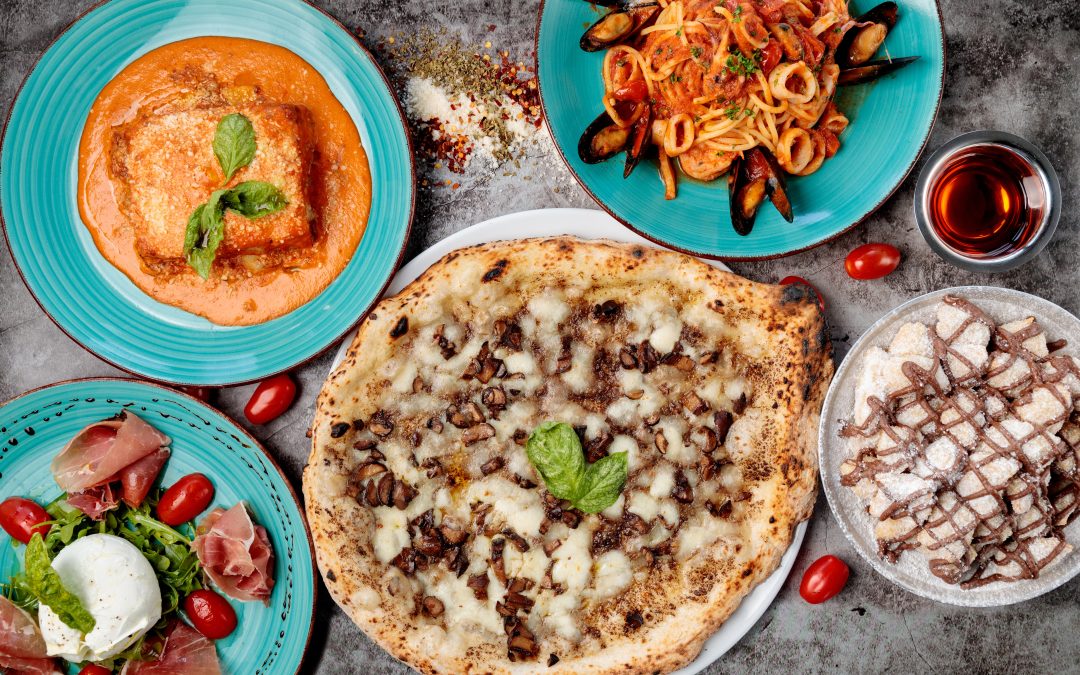Countering the norm of virtual restaurant providers selling a portfolio of brands, Forward Kitchens builds custom concepts for each client, which tend to be small-scale independent operators looking to grow their delivery revenue.
Founded by Raghav Poddar in San Francisco in 2019 and boosted by its inclusion in the Y Combinator startup accelerator program that same year, Forward Kitchens has flown under the radar while larger virtual restaurant companies like Virtual Dining Concepts and Nextbite have received the bulk of the attention in the category.

Forward Kitchens co-founder Raghav Poddar
“It’s worth it,” Poddar said about the work of creating unique virtual restaurant brands for each client, rather than a portfolio of a couple dozen or so concepts that are intended to cover the majority of restaurants seeking to add delivery-only brands to their kitchens.
“We aren’t creating a single brand and having hundreds of mom-and-pop restaurants make food for that brand,” he added. “Our concepts are unique to those locations, so we work with owners one on one and create a custom brand for them—we’re not saying, ‘Hey, here is a menu you need to follow.’”
Predating the pandemic, the idea for Forward Kitchens came from Poddar’s life experience after graduating from Columbia University in New York. Ordering a lot of delivery and carryout, and also spending time with a lot of restaurant owners, clued him into the concept that many independents have the talent and capacity to make additional cuisine types to get more revenue out of their existing investments—the genesis of all virtual restaurant providers.
After piloting the idea with an independent restaurant in San Francisco, its positive metrics pushed Poddar to move forward with the concept just as virtual restaurants were gaining traction in the pre-pandemic days when delivery was growing into a larger portion of the overall restaurant scene.
With a creative team focused on concept creation, menu design and branding, as well as a data team mining publicly available data to determine which cuisine types and demographics are at play in specific territories, Forward Kitchens also works with restaurant owners to incorporate their desires into the final brand that is tailored to their individual location and circumstances.
In many situations these days, Poddar said, restaurant owners are coming to the company with detailed plans for a virtual concept, while his team covers the details from technology to marketing campaigns, so the operator and its team is able to focus on execution.
 Asked why such ambitious operators couldn’t just create, launch and scale their own virtual brands, rather than paying a percentage of sales to an outside company like Forward, Poddar echoed what many other leaders in the virtual brand space have expressed: creating the concept is only one item on the laundry list of challenges to creating sustainable success with delivery-only concepts.
Asked why such ambitious operators couldn’t just create, launch and scale their own virtual brands, rather than paying a percentage of sales to an outside company like Forward, Poddar echoed what many other leaders in the virtual brand space have expressed: creating the concept is only one item on the laundry list of challenges to creating sustainable success with delivery-only concepts.
“Owners can put in the work if they want and that’s great, some owners do and they’re successful,” Poddar said. “But it is a lot of work: photography, logos, branding, getting on the platforms, then figuring out how to price them and get demand.”
Who ultimately owns the bespoke virtual concept depends on the individual contract between a restaurant and Forward Kitchens, which also differs from typical virtual concept providers that own all brands, recipes and related intellectual property.
Due to ongoing labor challenges, some multi-brand operators have reported turning their virtual brands off more frequently in recent months, but Forward Kitchens says its growing client base hasn’t been doing that in significant numbers. Poddar stressed that if any of its clients find themselves struggling with workload or staffing, his team works directly with them to either tweak the virtual menu, operating hours or anything else to find a happy medium that keeps all brands open and operating.
Asked about what digital tools the company can provide compared to larger competitors, Poddar said “honestly, the best technology we can offer [clients] is customer support” whether that’s through a phone call, on the brand’s dashboard or via text messaging when owners have questions about sales or need to make changes to their menus.
He declined to offer specifics on its pricing model, saying that it’s “custom per location” and dependent upon “a percentage of new orders that we bring them, so nothing on their existing sales.” The company’s goal is creating a risk-free relationship with no upfront costs, so a restaurant can quickly and easily get up and running.
 “If we bring you orders, we just charge a percentage of that, and that percentage varies depending on the location and the restaurant,” he said. “We want our incentives to be aligned with the restaurant—if we were charging monthly or recurring, then it’s not aligned, because we could theoretically be getting paid when the restaurant’s not getting paid and we don’t want that.”
“If we bring you orders, we just charge a percentage of that, and that percentage varies depending on the location and the restaurant,” he said. “We want our incentives to be aligned with the restaurant—if we were charging monthly or recurring, then it’s not aligned, because we could theoretically be getting paid when the restaurant’s not getting paid and we don’t want that.”
With hundreds of restaurants in its client base, Forward Kitchens is focused on staying nimble, so it can adapt quicker than larger, better capitalized competitors in the category, while growing its headcount required to scale up a concept creation factory that’s significantly different from other options in the space.
“We’ve been able to get a lot done with few dollars,” he added. “If the business fundamentals are strong and our clients are happy, then everything else follows.”


